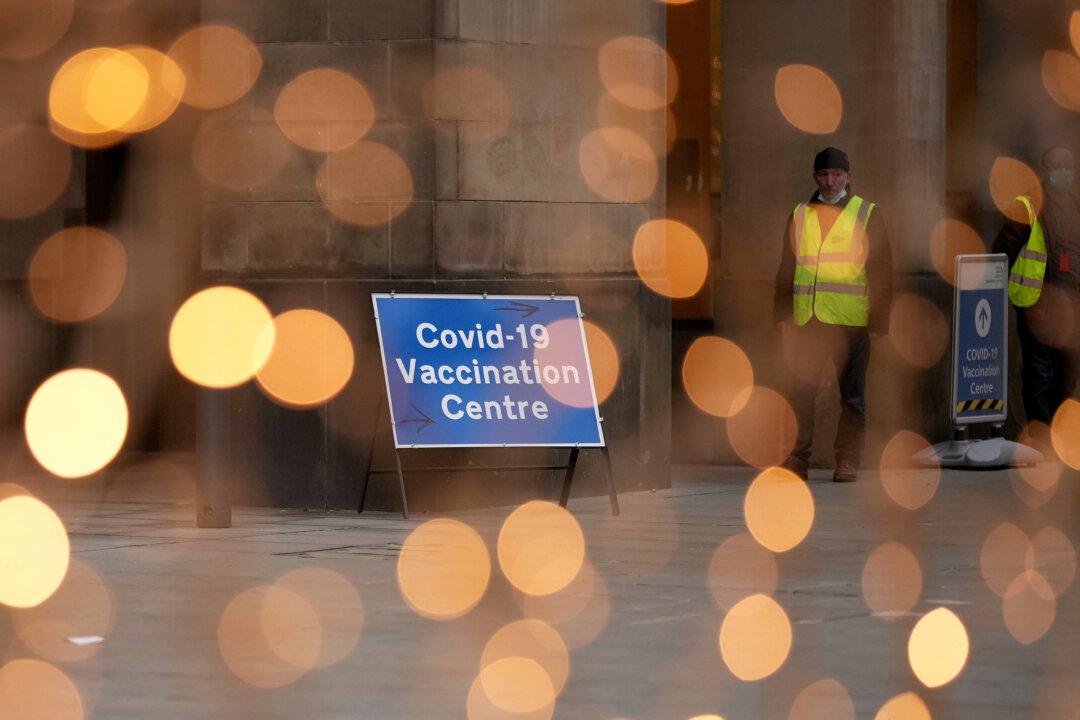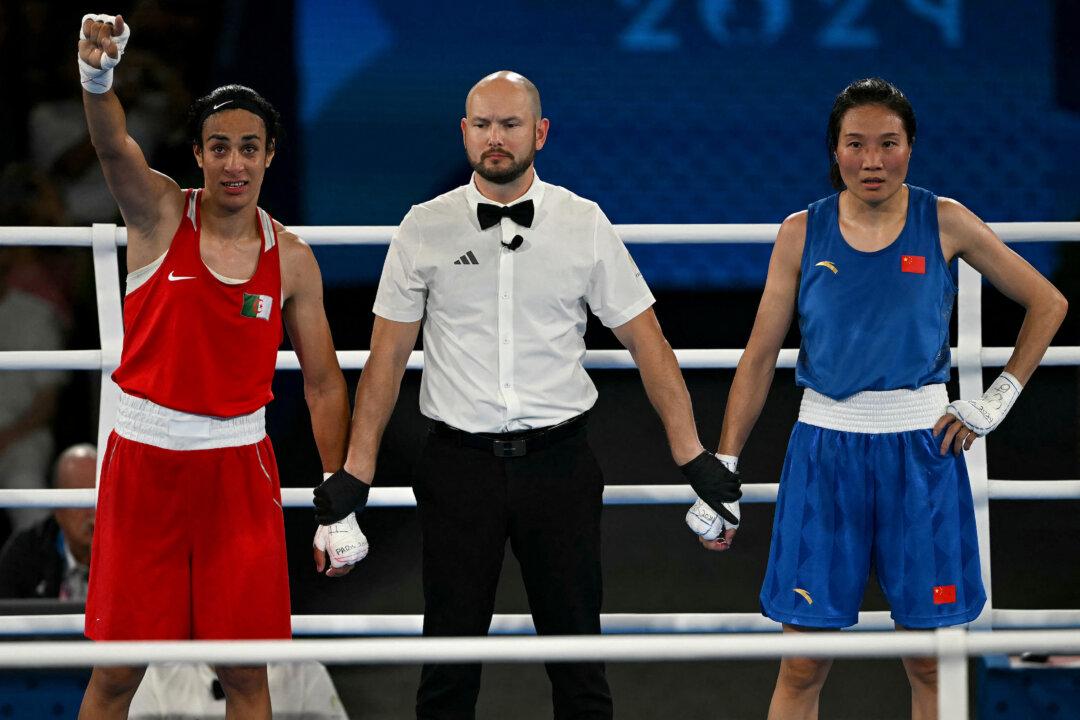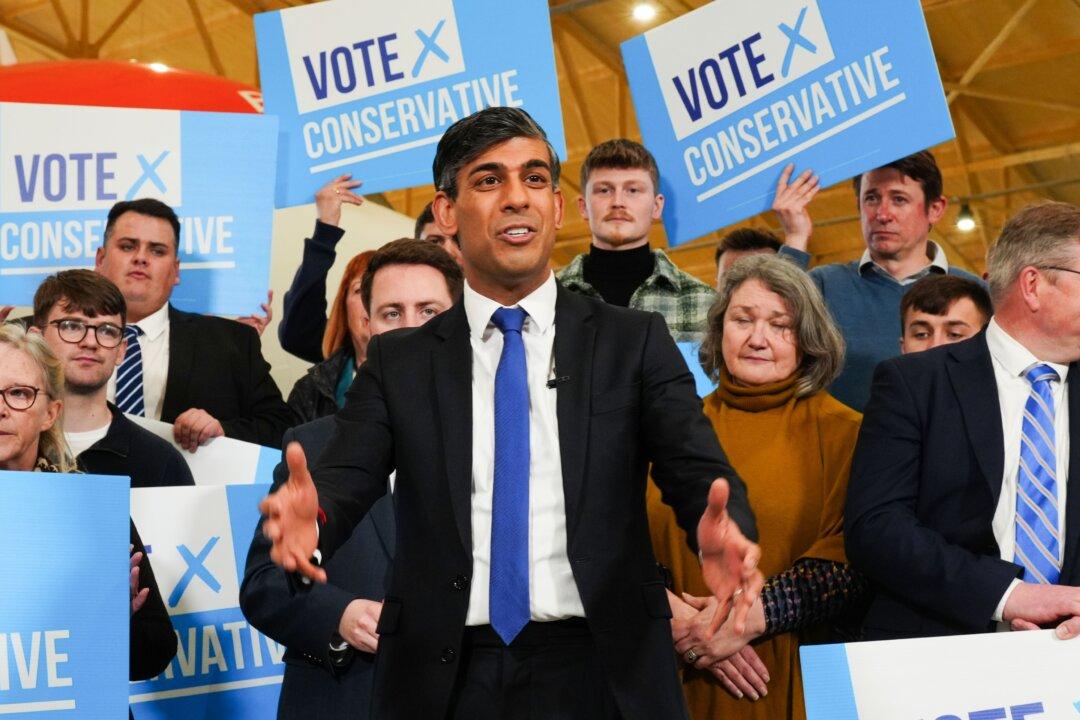Over-18s in the UK will receive a CCP (Chinese Communist Party) virus booster vaccine earlier than previously envisioned, a senior government adviser on immunisation said on Sunday.
Professor Anthony Harnden, deputy chairman of the Joint Committee on Vaccination and Immunisation (JCVI), said accelerating the booster programme by extending the eligible age range and reducing the interval between the second and booster doses “will be a sensible strategy” as the Omicron variant of the CCP virus was detected in the UK.




